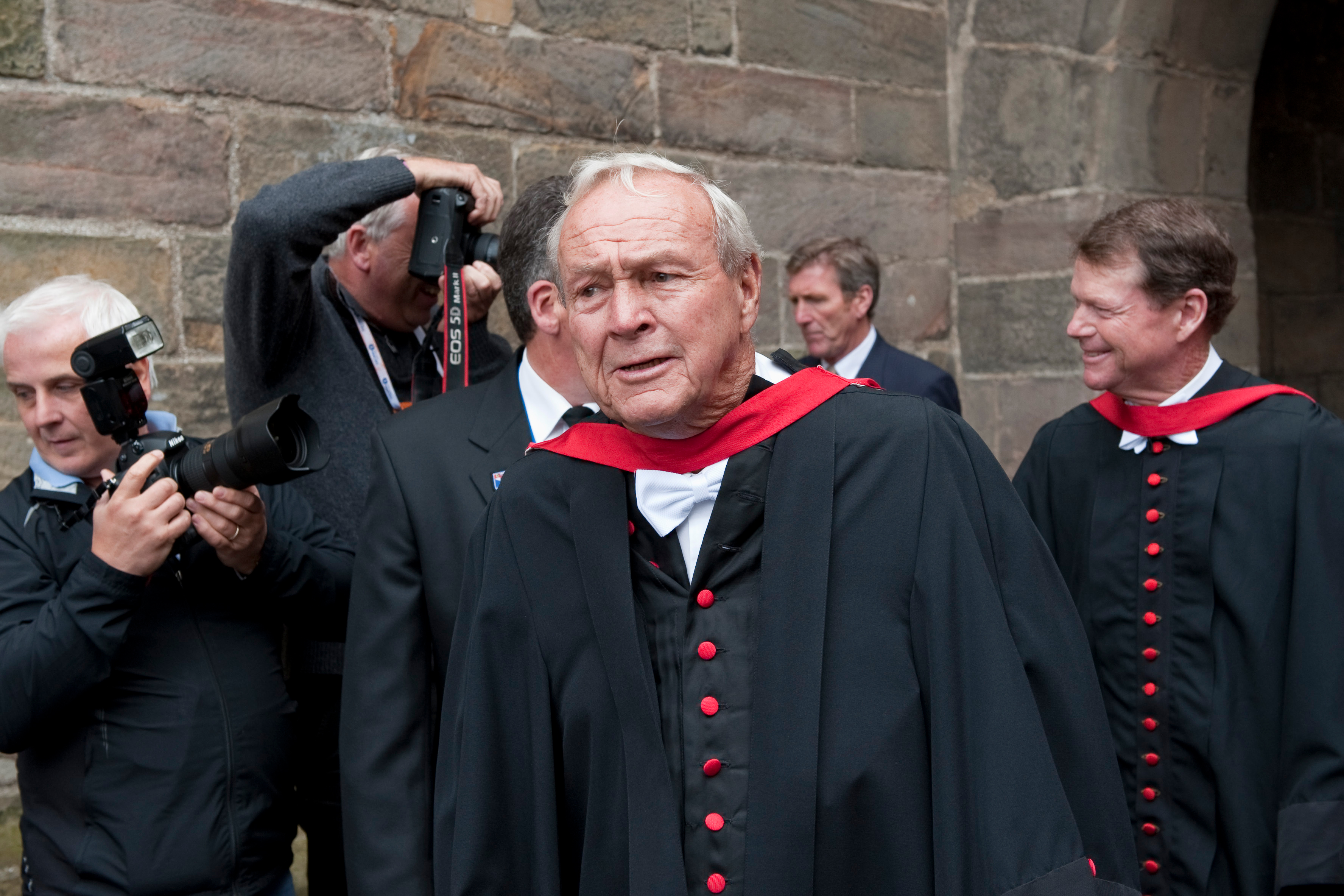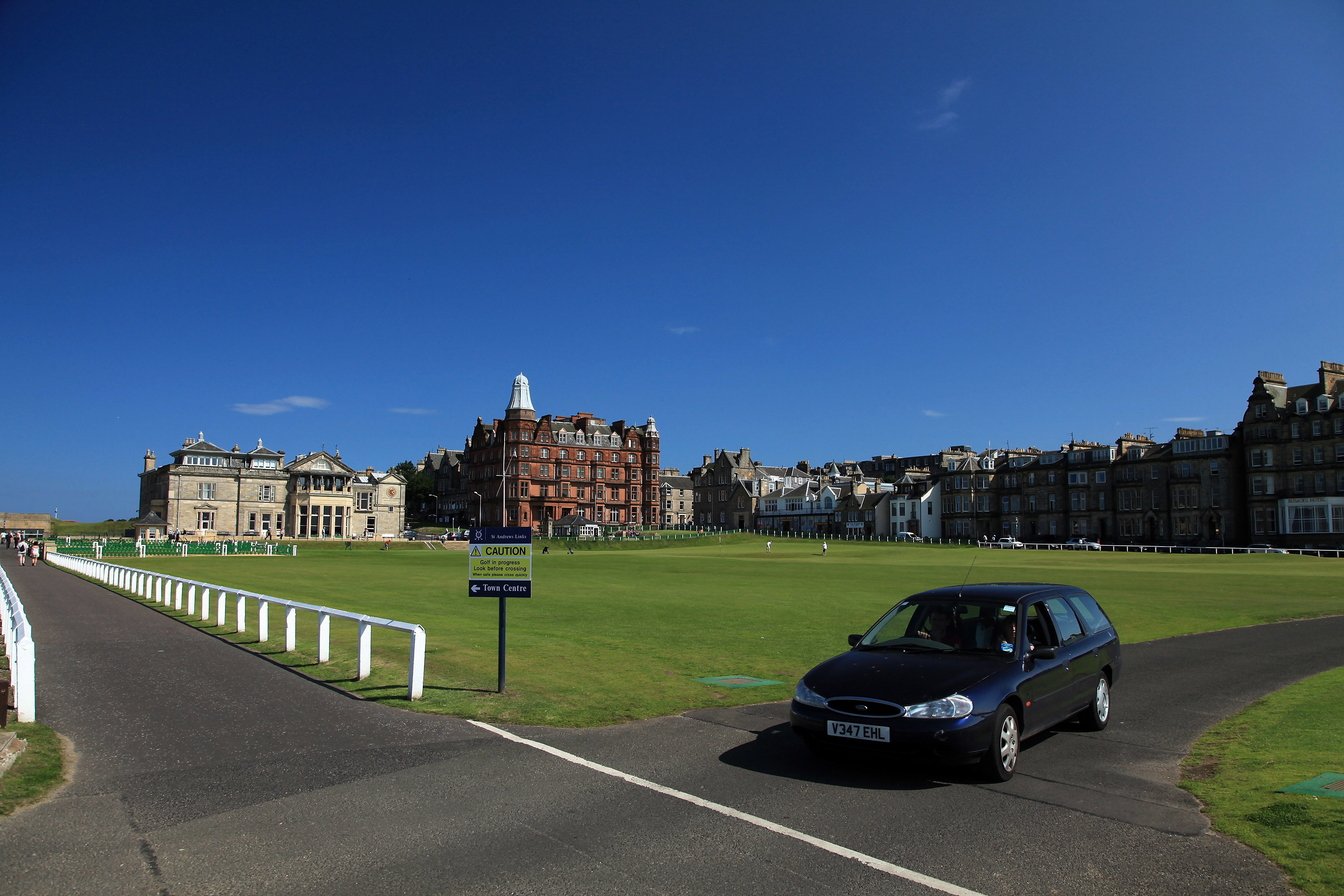10 Things You Didn't Know About St Andrews
St Andrews is the home of golf and of the third oldest university in the English-speaking world. The town has a rich and fascinating history.


The Old Course at St Andrews plays host to the 150th Open Championship in 2022. It will be the 30th time the historic links has been the setting for the grand old competition, no course has witnessed more instalments. It’s one of the most recognisable golfing venues on the planet with the Royal and Ancient clubhouse, Swilcan Bridge, Road Hole, Hell bunker and Grannie Clark’s Wynd some of its most famous features.
All fans of golf will know about the Old Course, its history and important position within the game. Here we consider a few things about the layout and about the town of St Andrews itself that you may just be a little less familiar with.
Anti-clockwise
Until the late 1800s the Old Course was played in a clockwise direction and it wasn’t until Old Tom Morris separated the 1st and 17th greens in around 1870 that it begun to be played in an anti-clockwise direction on alternate weeks. Many humps and hollows, bunkers and run-offs visible today are remnants of the old clockwise routing.
Shared greens

The 5th and 13th greens on The Old Course
Only the 1st, 18th, 17th and 9th holes at St Andrews have their own greens. All the others share greens with the hole numbers of shared greens always adding up to 18 – The 2nd shares with the 16th, the 3rd with the 15th and so on up to the 8th and 10th.
Swilcan/Swilken Bridge

The Swilcan Bridge
The Swilcan or Swilken Bridge is over 700 years old. Believe it or not, it wasn’t actually built for golfers to have their photograph taken on. Originally it was constructed so shepherds could get their livestock across the burn. It just so happens to now be perfectly placed for golfers heading off down the 18th of the Old Course. With the Royal and Ancient clubhouse and the Hamilton Grand building providing a striking backdrop, it does make for quite a good picture.
In the World Golf Hall of Fame in Florida, there’s a full-size stone replica of the Swilcan Bridge.
Honorary Degrees

Arnold Palmer and Tom Watson behind
A number of famous golfers have received honorary degrees from the University of St Andrews over the years. Jack Nicklaus, Arnold Palmer, Tom Watson and Sir Nick Faldo are amongst those who are honorary graduates. So too is the Dalai Lama who, according to Bill Murray, is a pretty long hitter.
Subscribe to the Golf Monthly newsletter to stay up to date with all the latest tour news, equipment news, reviews, head-to-heads and buyer’s guides from our team of experienced experts.
Golfing for Six Centuries
Golf has been played on the links in St Andrews since around 1400. It was banned in 1457 by James II who felt young men were playing too much golf and neglecting their archery practice. James IV wanted to play golf though, so he overturned the ban in 1502.
Rabbits

The place was crawling with them
In the late 18th century, the land on which the old course sits had been overrun by rabbit farmers. The golfers obviously didn’t like it and there was ongoing, occasionally violent, dispute between them and the farmers. The situation was solved in 1821 when James Cheape of Strathtyrum (a keen golfer and local landowner) bought the land and the rabbit farmers were given the heave-ho. There is now a Strathtyrum course at St Andrews and a “Cheape” bunker on the 2nd hole of the Old Course.
Town courses

The New Course
The links is run as a public course, administered by the St Andrews Links Trust. That means people who live in the town of St Andrews can play the courses for a very reasonable rate. A yearly ticket to play all seven courses at St Andrews costs locals, and students at the university, just £340 – that’s only £70 more than a single round on the Old Course for a regular green fee payer.
Chariots of Fire
West sands beach alongside the links at St Andrews was used in filming for the 1981 film Chariots of Fire. As Vangelis’ famous electronic theme played, Ben Cross, Ian Charleson, Nigel Havers et al went pounding barefoot down the edge of the sea in the stirring opening sequence.
Grannie Clark

Grannie Clark's Wynd
Grannie Clark’s Wynd is the public road that bisects the 1st and 18th holes. If your ball comes to rest on it, you must play it as it lies. Grannie Clark used to supervise the goings on at the communal drying green in the mid 1800s and was such a well-known local figure that the road was named after her.
Sutherland
In 1869 the greens committee of the day decided to fill a small pot bunker on the 15th fairway, it bizarrely re-appeared overnight. Local golfer AG Sutherland, who was a vocal opponent of the change, (apparently wrongly) received the blame. The bunker is still there and is called “Sutherland.”

Fergus is Golf Monthly's resident expert on the history of the game and has written extensively on that subject. He has also worked with Golf Monthly to produce a podcast series. Called 18 Majors: The Golf History Show it offers new and in-depth perspectives on some of the most important moments in golf's long history. You can find all the details about it here.
He is a golf obsessive and 1-handicapper. Growing up in the North East of Scotland, golf runs through his veins and his passion for the sport was bolstered during his time at St Andrews university studying history. He went on to earn a post graduate diploma from the London School of Journalism. Fergus has worked for Golf Monthly since 2004 and has written two books on the game; "Great Golf Debates" together with Jezz Ellwood of Golf Monthly and the history section of "The Ultimate Golf Book" together with Neil Tappin , also of Golf Monthly.
Fergus once shanked a ball from just over Granny Clark's Wynd on the 18th of the Old Course that struck the St Andrews Golf Club and rebounded into the Valley of Sin, from where he saved par. Who says there's no golfing god?